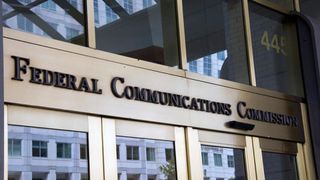Bennett: ISP Dereg Hasn't Hurt Public Safety Communications

Richard Bennett, High Tech Forum founder and WiFi pioneer, said broadband's handling of traffic during the pandemic suggests the FCC should not have a hard time convincing a federal court that its ISP deregulation did not negatively impact public safety because that criticism has been overtaken by events.
Bennett made that argument in comments to the FCC on the court's remand of that issue back to the FCC. In Mozilla V. FCC, the U.S. Court of Appeals for the D.C. Circuit upheld the vast majority of the FCC's 2017 Restoring Internet Freedom (RIF) order, but said the FCC's failure to explain its impact on public safety communications was arbitrary and capricious.
In a blog summarizing his filing, Bennett said that, for one thing, the order did not directly affect public safety because under the previous Open Internet Order that the RIF order replaced, public safety communications had been exempted from the net neutrality rules.
Related: Bennett Says Save the Internet Act Has It All Wrong
Bennett called the court's public safety remand "a bit petulant" since it endorsed some claims that in pandemic-driven hindsight appear "perfectly bizarre."
He said those raising public safety concerns about the RIF order say the public is harmed because the order "allows website operators to 'accelerate' their traffic by paying fees to ISPs if public safety does not or cannot afford to pay such fees."
For example, he said, the court pointed to the California Public Utility Commission prediction that the RIF order would “profoundly impair” the ability of state and local governments “to provide comprehensive, timely information to the public in a crisis.”
Multichannel Newsletter
The smarter way to stay on top of the multichannel video marketplace. Sign up below.
These "apocalyptic visions of utter catastrophe" that persuaded the court to remand the public safety questions are belied by the fact that "Americans aren’t just getting good service from their residential service providers, they’re getting that service in the midst of the COVID-19 pandemic."
He said the doom and gloom scenario has not panned out because it was "patently hyperbolic" from the start. "In response to the COVID-19 pandemic, we’re now conducting a nationwide and worldwide test of the Internet’s capacity to function in a public safety emergency that forces the Internet to carry 25%–50% more traffic (and even more in some cases) than it routinely does. The public health systems at the federal, state, and local level are continuing to function without notable incident.
Related: Bennett Says Paid Prioritization Does Not Necessarily Mean Degradation
"Every day the White House coronavirus task force streams a briefing to the public through Facebook and several news websites despite efforts by some to censor these communications. Social media platforms and networks are awash with commentary on the pandemic, both true and false. Millions of Americans are working, schooling, and assembling virtually through Virtual Private Networks, video conferencing platforms, and webcasting. While some users experience slowdowns in their self-managed WiFi networks, it’s fair to say that no one is unable to communicate on account of their inability to pay QoS [quality of service] fees."
He cited Zoom, the videoconferencing tool that has exploded during the shelter-at-home days of COVID-19. Bennett points out that the service has grown from 10 million customers only a few months ago to 200 million. "This is one of the most demanding apps the Internet has to handle because it has little tolerance for delay and high bandwidth requirements on both the downstream and upstream sides. But it works."
Contributing editor John Eggerton has been an editor and/or writer on media regulation, legislation and policy for over four decades, including covering the FCC, FTC, Congress, the major media trade associations, and the federal courts. In addition to Multichannel News and Broadcasting + Cable, his work has appeared in Radio World, TV Technology, TV Fax, This Week in Consumer Electronics, Variety and the Encyclopedia Britannica.

